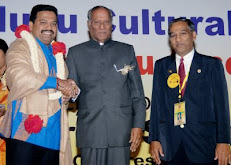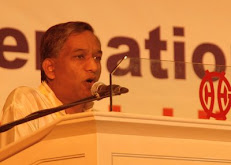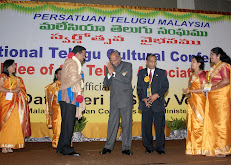
Who are the Malaysian Telugu?
The Telugu of Malaysia have ancestral origins in Andhra Pradesh and neighboring states of South India. The Telugu who migrated to Malaysia were mostly farmers from the lower caste (pattern of social classes in Hinduism). In the late 19th and early 20th centuries, the Telugu willingly signed on as indentured laborers with the estate supervisors from Malaysia and left their farms in Andhra Pradesh with hopes of gaining wealth and returning back toIndian one day. Though work was hard on the rubber plantations, they found time to plant vegetables and raised animals to supplement their income. They lived simply and saved their money. As years passed many opted to stay in Malaysia and only traveled back to Andhra Pradesh to visit family members or find brides whom they brought back. They used their savings to set up small businesses that eventually brought them out of estate work. In the 1940s, many Telugu ventured back into the estates selling textiles, household items, and food from India.
What are their lives like?
Telugu have now shifted from rural areas to the urban centers. Due to their emphasis on education, a large number of Telugu have moved up the social ladder from their modest beginnings in plantation work. Today, most Telugu are literate and educated. Many Telugu are professionals and have middle level occupations in commerce, the government service, and other professions. Very few families fall below the poverty level. A few men still wear dhotis (simple white garments wrapped between the legs loosely like a skirt); and the women sometimes wear saris (straight pieces of cloth draped around the body like a dress), especially on formal occasions. On the other hand, western clothes are the norm for most Telugu. The caste system is dying out with each new generation of Malaysian Telugu, partly due to intermarriage with other Indian and Malaysian groups. Some of the old Telugu customs seem to have been lost with time and assimilation into Malaysian society, though they still have a distinct culture and language. Most marriages are still arranged by Telugu parents.
What do they believe?
The Telugu are mainly followers of Hinduism. For the Hindu majority, their “Hinduism” is as much a lifestyle as it is a religion. Telugu are mainly Vaishnavites (followers of the deity Vishna).Telugu participate in festivals celebrated by most Indian Hindus in Malaysia such as Thaipusam (a ritual of human endurance, self-sacrifice, and the power of mind over matter) and Deepavali (known as the Festival of Lights). There are festivals distinct to Telugu such as Boghi, Sakranthri ,Ugadi (beginning of a new Hindu lunar calendar with a change in the moon’s orbit) celebrated during the month of March or April with Ugadi patchadi (special vegetarian meals) and Cherathalu (a joyful folk dance).
Reference: Indian Cluster



.jpg)
.jpg)
.jpg)
.jpg)
.jpg)


No comments:
Post a Comment